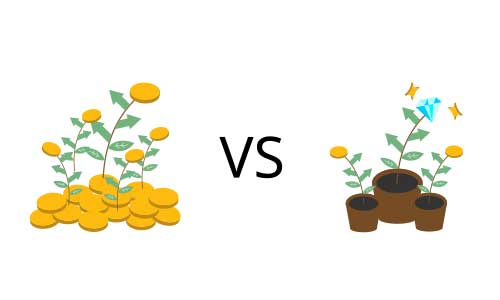How to Save for Retirement in UAE
Retirement is no longer just the final chapter of your working life — it’s a chance to enjoy freedom, travel, passion projects, and time with loved ones. But how much money you need to retire comfortably? If you’re living in the UAE, especially as an expat, the question becomes even more pressing. ...read more
Why Do You Need a Retirement Plan in the UAE?
Living and working in the UAE comes with many perks: tax-free income, high salaries, and world-class infrastructure. But when it comes to how to save for retirement in UAE, many residents, especially expats, don’t have a solid plan in place.
This means you won’t receive monthly pension payments unless you plan and fund your retirement, so the responsibility falls squarely on your shoulders. UAE nationals, on the other hand, do receive pensions, with employees contributing 5% of their salary and the government or employer contributing up to 15%.
Expats end up relying mostly on —
- End-of-service benefits
- Personal savings and investments
- Home country pension schemes (if applicable)
Best Investment Plans in UAE
Some of the best Investment quotes in UAE & Dubai are:





How to Save for Retirement in UAE? A Step-to-Step Guide
Most of us are wondering, “How much should you have saved for retirement?” Below are some points that you can keep in mind —
Step 1: Visualise Your Retirement Life
Before you do any math, envision your retirement.
- Will you retire in the UAE or go back home?
- Do you plan to buy a home or rent?
- Will you travel or pick up expensive hobbies?
- What are your monthly expenses likely to be?
This vision helps you get clarity on how much to save for retirement, and what your total retirement corpus needs to look like.
Step 2: Estimate Your Retirement Expenses
Use today’s numbers as a base and adjust for inflation. Let’s say you need AED 15,000/month to cover your lifestyle today. If you plan to retire in 20 years and assume a 3% inflation rate, that figure becomes AED 27,000/month.
Multiply that by 12 months and 25 years (an average retirement length), and you’re looking at the need for over AED 8.1 million just to maintain your lifestyle.
You can also use online retirement calculators to simulate scenarios based on income, savings rate, investment return, and age.
Alternatively, you can aim to save 20x your annual expenses to ensure financial independence.
Step 3: Start Early: Time Is Your Best Friend
Here’s the hard truth: how much you need to retire grows significantly the later you start. But even if you’re in your 30s or 40s, it’s not too late. What matters is getting started now.
Example: Saving AED 2,000/month from age 30 at 8% return = AED 2.3 million by age 60
Wait until age 40? You’ll only have AED 1 million with the same monthly savings
How to start a retirement fund?Open a dedicated savings or investment account. Set up an automatic monthly transfer. Treat it like a non-negotiable expense. |
|---|
Step 4: Don’t Just Save, Invest
A savings account may feel safe, but it won’t grow your wealth fast enough to beat inflation. Investing your money is key to long-term success.
Here are some retirement planning options in the UAE —
- Savings Accounts offer safety and easy access to your funds, though returns are minimal. Think of this as your short-term or emergency buffer.
- Mutual Funds are pooled investment vehicles managed by professionals. You can choose from equity funds, debt funds, hybrid funds, and more. Mutual funds are ideal for medium- to long-term growth.
- Stocks are better suited for long-term investors who can ride out market ups and downs.
- Bonds are essentially loans you give to companies or the government in return for fixed interest. They are relatively stable and are often used to balance riskier assets in your portfolio.
- Real Estate generates passive income through rentals and capital appreciation. However, it requires a larger initial investment and ongoing management.
- Retirement Plans can be customised based on your age, income, and risk tolerance. Some financial institutions in the UAE offer structured retirement plans with guaranteed benefits and investment options in UAE.
Expats often ask, can NRI invest in ELSS mutual funds?Yes, NRIs can invest in ELSS (Equity Linked Saving Schemes). They are like mutual funds but trade like stocks and offer diversification, lower expense ratios, and greater flexibility. You can invest in local, regional, or global markets through ETFs. |
|---|
Step 5: Get Help from Experts When Retirement Planning
If retirement planning feels overwhelming, you’re not alone—and you don’t have to figure it all out by yourself.
A professional financial advisor can guide you through economic cycles, asset allocation, and tax-efficient strategies. But make sure to ask about:
- Commissions they may receive
- Fees you’ll pay on your investments
Whether the advice is product-based or truly tailored to your goals
Step 6: Use Your UAE Benefits Wisely
Even if you don’t get a pension in the UAE, you may be eligible for —
- End-of-Service Gratuity – A lump sum payout that can go into your retirement corpus
- Company Savings Plans – Some UAE employers offer voluntary retirement or savings schemes
- Home Country Pension Contributions – Continue contributions where allowed
Step 7: Pay Yourself First
Before spending your salary, allocate a portion to your future. Whether it’s AED 500 or AED 5,000 a month, consistency is key.
Pro tip: A standing instruction to transfer money to your retirement fund right after payday removes the temptation to spend.
Step 8: Healthcare Is Non-Negotiable
Private healthcare in the UAE isn’t cheap and medical costs usually rise with age. Plan ahead by —
- Getting long-term health insurance
- Considering a health savings account (HSA)
- Factoring medical costs into your retirement budget
Step 9: Adapt As You Go
Life changes. Your income grows. Expenses evolve. So should your retirement plan. Review your progress annually. Rebalance your portfolio. Increase your savings rate as your salary increases.
And remember, how much should you have saved for retirement changes with age —
|
Age |
Recommended Savings |
|---|---|
|
30 |
1x your annual salary |
|
40 |
3x your annual salary |
|
50 |
6x your annual salary |
|
60 |
8–10x your annual salary |
Smart Retirement Moves for UAE Expats
- Use your tax-free income to invest, not just spend
- Consolidate pensions from previous jobs or countries
- Review insurance, your work policy may not be enough
- Create a will to protect your assets as an expat
- Get expert advice, Policybazaar.ae offers tailored solutions
Final Thoughts: Start Small, but Start Now
You don’t need to have it all figured out today. Retirement planning is a journey, and the earlier you begin, the more options you have. Whether you’re 25 or 55, whether you’re building your first emergency fund or planning your legacy, every dirham invested wisely brings you closer to financial freedom.
Even a small step today can make a big difference tomorrow. That’s the real goal of retirement planning. So, how much money do you need to retire? Enough to live your dream life, without compromise.
Start saving today. Start investing wisely. And build a future you’re excited to grow old in.
Frequently Asked Questions
What is the golden retirement visa in UAE?
The UAE offers a 5-year retirement visa to foreigners aged 55 or above, or those who’ve worked for 15+ years. Applicants must also meet financial criteria, like savings or property ownership.
How much money do I need to retire in the UAE?
To qualify for the UAE’s 5-year retirement visa, you’ll need either AED 1 million in savings or own property worth at least AED 1 million. Meeting this financial threshold makes you eligible to apply as a foreign retiree.
What is the retirement plan for expats in UAE?
The Golden Pension Plan (GPP) is a voluntary savings scheme for private-sector expats in the UAE. Launched by National Bonds in 2022, it helps build retirement funds beyond the usual end-of-service gratuity.
Is 35 too late to start saving for retirement?
Not at all! Starting at 35 still gives you enough time to build a strong retirement fund, especially with consistent saving, smart investing, and clear financial goals.
More From Investment
- Recent Articles
- Popular Articles






















